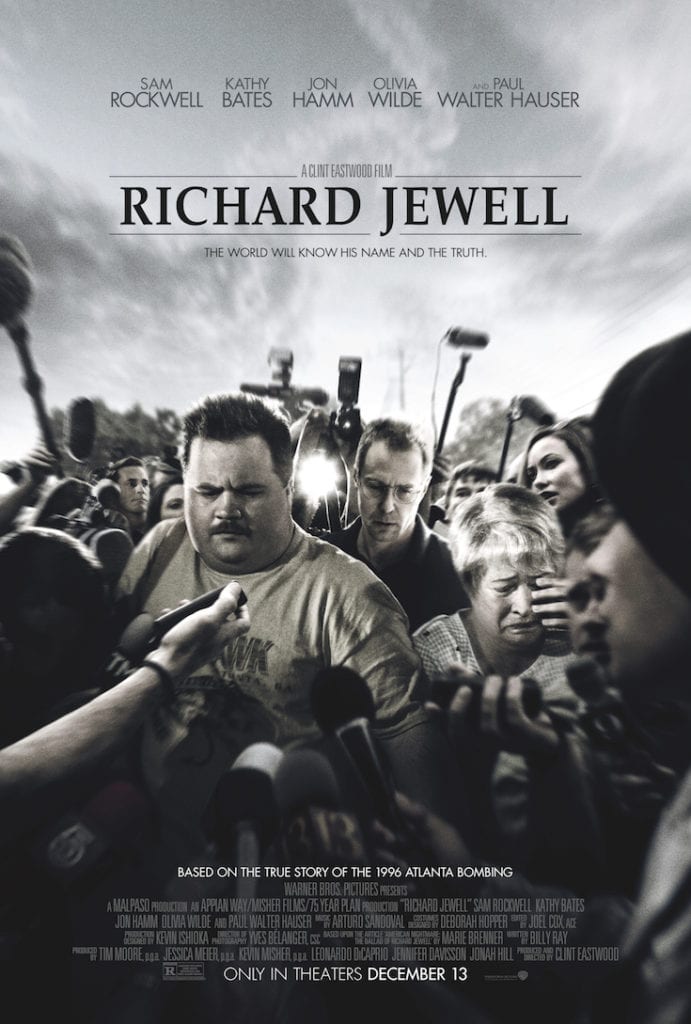
Before I saw the press screening for the new Clint Eastwood movie, Richard Jewell, I did something I never do. I read other critics’ thoughts and opinion. I didn’t read into too much detail but I did glance at a few headlines. I saw words like, long, boring, and dull. But I know I can handle long, boring, and dull if the acting is really good.
It was definitely a long movie, coming in at 131 minutes. In fact, it felt like it was about 10 minutes too long. But boring? Dull? I was thinking that perhaps that critic had sat through another movie. And I don’t put too much weight in critics that aren’t always terribly in touch with the average moviegoer.
What Some of the Critics Said
And then I read a few more headlines this morning and I felt a bit outraged, starting with Slate’s review of the film:
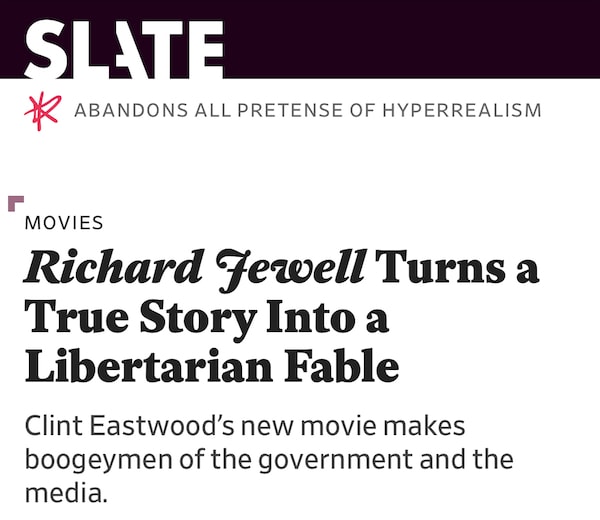
They make it sound like the Clinton-era government was being completely fabricated and demonized in the film. But it got even worse with this headline from the Washington Post:
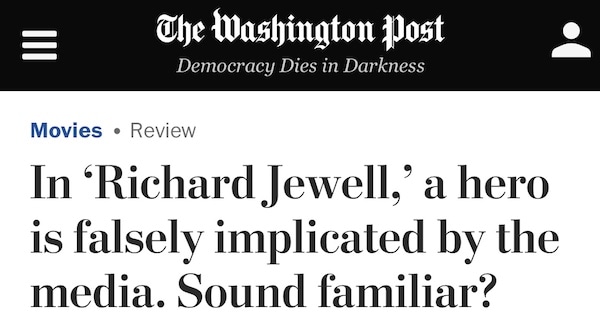
Reporter Michael O’Sullivan states:
“It’s the Trump-iest movie you’ve ever seen, set a full 20 years before the election of the famously press-bashing, Deep State-loathing president.”
I guess it’s a little shocking since it’s highly likely that O’Sullivan sat in the same theater I did for the Washington, DC area press screening. Clearly, we all bring our own entertainment preferences and biases into each and every movie but I feel like we did not see the same film.
Richard Jewell – A Reluctant Hero
If you weren’t around in 1996 or weren’t in the capacity to closely follow the story (or more likely, like me, it’s faded from your memory), you’ll need to refresh yourself with the true story of Richard Jewell.
Jewell was a law enforcement wannabe that drifted from job to job in hopes of someday carrying a legitimizing badge. Early in the story, we meet key figures, Watson Bryant, who later becomes his lawyer, and his mother, Bobi, with whom he shares an apartment. We quickly see his career take him to his role as a security officer for Centennial Park, a recreational area for the 1996 Atlanta Summer Olympics.

He’s a bit overzealous and when stumbling upon a “suspicious package” – a backpack that most people wouldn’t look twice at – he quickly alerts the authorities. It’s clearly a situation of the right guy in the right place at the right time.
But things are a little too “right” and when the FBI starts investigating, they quickly realize he fits the psychological profile of a domestic terrorist. The story is leaked from the FBI to crime reporter Kathy Scruggs at the Atlanta Journal-Constitution who promptly pursues front page coverage.
From there, the story snowballs and Jewell, who saved lives by discovering the bomb quickly is perceived by the public as a terrorist as opposed to a hero. That’s the crux of this story. A man, who by all rights should have been lauded, who is tried and convicted in the face of the media.
As you might imagine, the media might take that a little personally.
How the “Fake News” Climate Affects the Film
Let’s talk about the elephant in the room. Clint Eastwood brought this movie to light and directed this film. He’s a well-known conservative and maybe even likes that Trump guy. That alone is enough to make the most liberal of liberals not want to give his content fair consideration. But the media should be able to put their personal bias aside and see the movie as a piece of art.
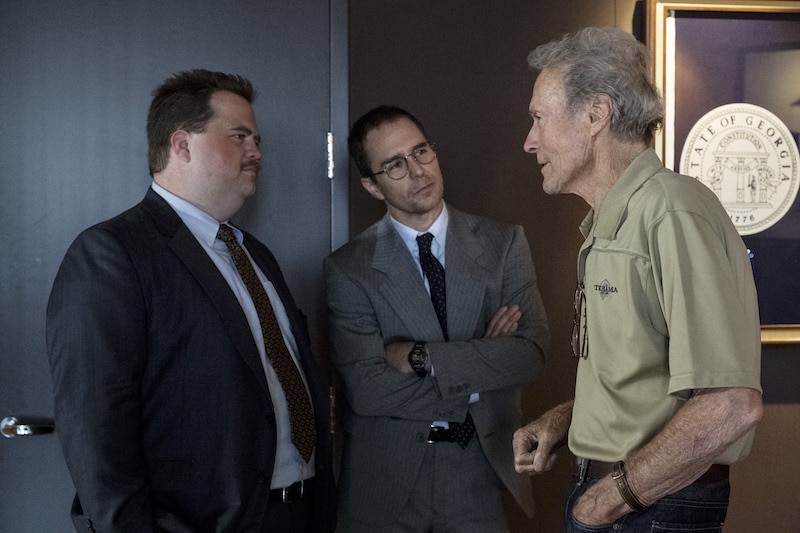
As you saw above, plenty of critics are looking for the conservative agenda in this film. And when you look hard enough, you’ll find it. I’m sure there was a wink, wink, nudge, nudge moment when Watson Bryant asks Richard Jewell if he knows what “quid pro quo” means. And we see the poster in his office stating, “I fear government more than I fear terrorism.”
The latest outrage is over the portrayal of Kathy Scruggs as a hard-ass reporter that would do whatever it took to get her story. The implication is that she may have offered sexual favors for information from the FBI on Richard Jewell. If I were friends or family of Kathy Scruggs and knew this devoutly to be false, I could understand the fervor over this. But I’m a little shocked that this piece of anti-feminism has become the lead story on this film.
The narrative of this movie is continually detracted by politics and agenda by… you guessed it, the media. Which tells me that the media hasn’t changed all that much in the 20+ years since this happened.
It’s Really Just A Good Movie
If everyone puts politics and agenda aside, what they’ll find is a well-acted, well-directed film that helps commend Richard Jewell for his heroic actions, albeit posthumously.
Paul Walter Hauser is phenomenal as Richard Jewell, the teddy bear-type, aw shucks, good old Southern boy living with his mama. He wants to make a mark in law enforcement and make his mama proud. And his eagerness and just under the surface emotion makes Hauser’s acting seem effortless.
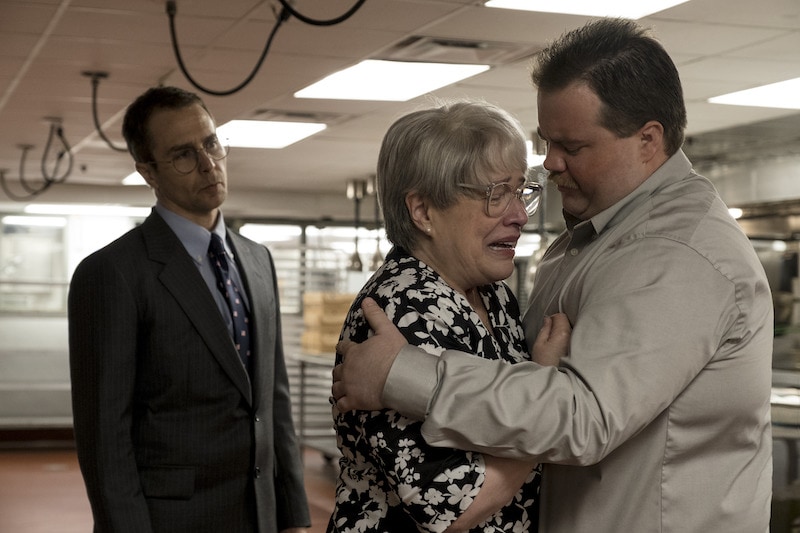
Kathy Bates shines as the long suffering Southern mama, Bobi Jewell, who just wants what’s best for her boy. In fact, she’s already received a Golden Glove nomination for her role.
Sam Rockwell creates a complex character as lawyer Watson Bryant. It takes most of the film to really figure out who he is but he’s definitely carries the voice and perspective of the audience for this film.

Olivia Wilde and Jon Hamm delightfully portray the antagonists, reporter Kathy Scruggs and FBI agent Tom Shaw, respectively. Only Scruggs, by the end of the film, sees the implications of her actions. In the end, there’s nothing that Scruggs wrote that was inaccurate. But it was the fuel that fanned the flame of trial by media.
Photo credit: Warner Bros Photo credit: Warner Bros
Richard Jewell is a movie that gives redemption to a hero that never quite got his due. It’s rated R for language, brief violent scenes, and sexual innuendo.
My Video Review of Richard Jewell
Read my other movie reviews here.

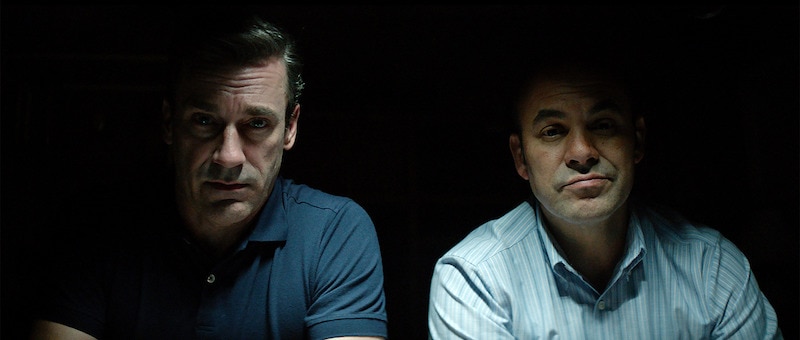
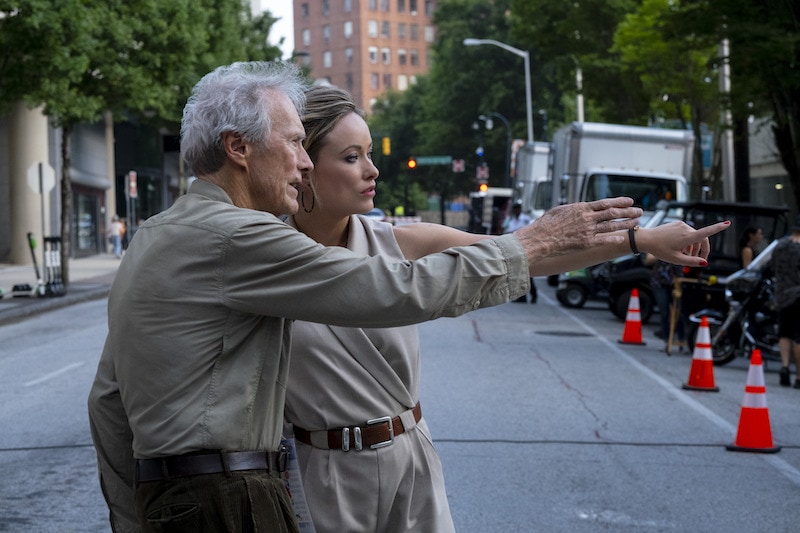

Thanks for the review. I’m looking forward to seeing this one!
This movie wasn’t on my “must see” list before reading your review, but it certainly is now!
This was a great review! I agree with you. the critics almost never get it right. You will see a rotten tomatoes critic rating of 30% and an audience rating of 90% for example.